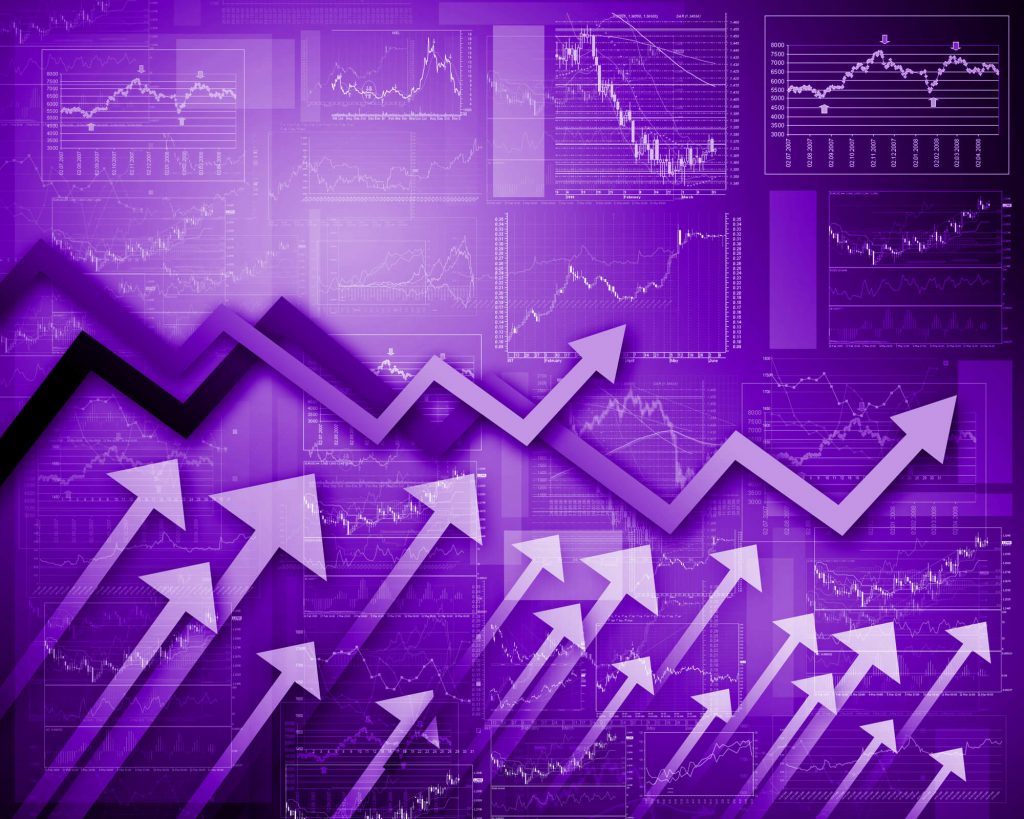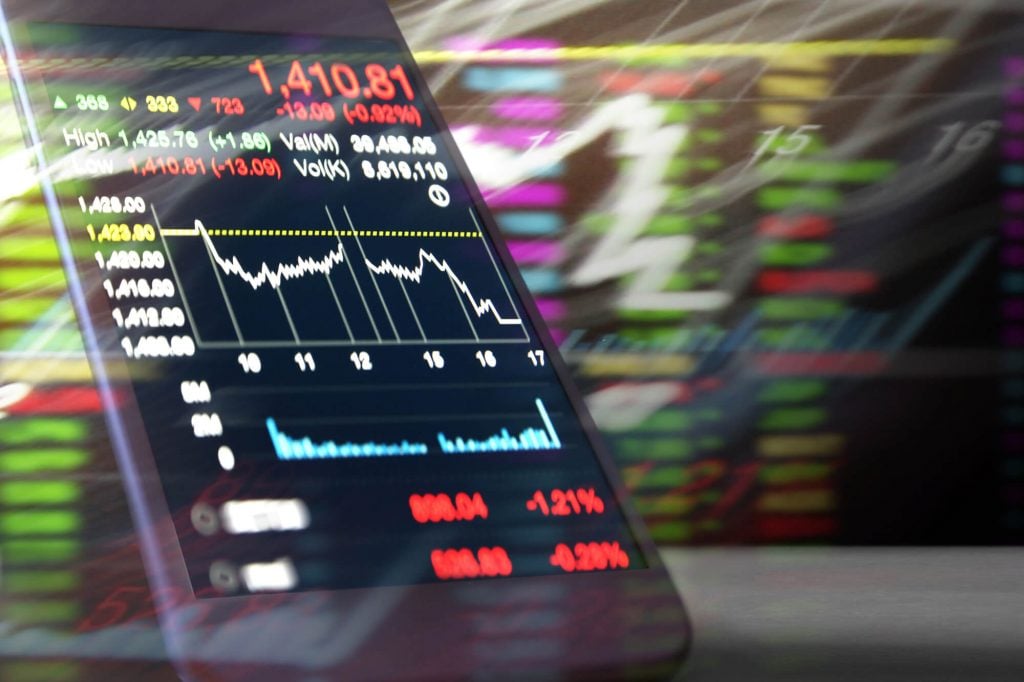
The stock market has held a hovering, abstract presence in most of our lives.
There have been times when we’ve struggled to define it. Its complexities are several. Its inner workings are puzzling to many.
But it’s had an enormous impact on the economy and shape of the world. The stock market is utilized as a barometer (sometimes inaccurately) of economic health. It’s signaled great periods of growth and extended recession. To some extent, we depend on it to guide financial decisions.
Yet there’s still a lot of mystery about what the stock market is. And a big question some of us ask is “Who owns the stock market?”
That may sound like a hypothetical question. Like “Who owns trees?” or “Who owns agriculture?” The stock market looms so large that it’s hard to imagine someone possesses it.
But in reality, there are a few tangible, solid answers to the questions “Who owns NYSE?” and “Who owns Nasdaq?”

How Stock Exchanges Started
When thinking about who owns the stock market, we’re probably thinking about stock exchanges. A stock exchange is basically a financial marketplace. It’s where buyers and sellers trade investment vehicles.
Obviously, shares of stock are traded on the exchange floor. But they’re not the only kinds of securities a stock exchange services. It also accommodates the trading of bonds, commodities, equities, funds, and more.
The first stock exchange in history was the Amsterdam Stock Exchange, founded in 1602. It was established by the Dutch East India Company as a center for selling stocks and bonds. Historians also consider the Dutch East India Company to be the prototype of modern-day corporations. So, the stock market and corporate business models share the same point of origin. Not much of a surprise, when you think about it.
The New York Stock Exchange (NYSE) is probably the one most of us are familiar with (a little, at least). It was founded in 1792 on Wall Street in New York City by 24 stockbrokers. They met under a buttonwood tree, which is why the document that founded NYSE is called the Buttonwood Agreement. In 1817 it was officially named The New York Stock and Exchange Board. NYSE got its current name in 1863.
NYSE wasn’t the first stock exchange in America. That was the Philadelphia Stock Exchange, which was established two years earlier. NYSE, however, became the largest and busiest stock exchange in the world, by far.
Who Owns the New York Stock Exchange?
Who owns NYSE? For most of its existence, NYSE was “owned” by the companies on the exchange. Starting in 1868, the only way to get a seat on the exchange was to buy it from an existing member.
A seat at NYSE was extremely valuable in the old days. It was the only way commodities could trade straight on the exchange. The price of a seat varied over the years, but it was never cheap. In 1929 one sold for $625,000, which would be worth more than $6 million today.
NYSE was a not-for-profit business for the first 214 years of its life. Unlike the companies that traded on it, one couldn’t buy shares of stock in NYSE.
That changed in 2006. NYSE had agreed to merge with a company called Archipelago. Archipelago was one of the stock market’s first electronic communications networks (ECNs). It was hugely influential in the development of online trading, which is how most stock transactions take place today. Archipelago also boosted after-hours trading and facilitated the rise of the retail investor.
When this merger happened, NYSE turned into a profit-making enterprise. Gone was the tradition of buying seats on the exchange. On March 8, 2006, the New York Stock Exchange made shares in itself available to the public for the first time.
In 2007 NYSE merged with Euronext, the biggest stock exchange in Europe. The newly combined company was called, wait for it, NYSE Euronext.
But NYSE Euronext’s status as a stand-alone company didn’t last terribly long. In 2012, after a few months of legal and legislative wrangling, NYSE Euronext was bought by Intercontinental Exchange (ICE), an Atlanta company. This effectively ended NYSE’s 220-year history of independence. ICE spun off Euronext into its own entity once again and kept NYSE.
Who owns the New York Stock Exchange today? ICE, still. They also own the London International Financial Futures and Options Exchange.

Who Owns Nasdaq?
NYSE didn’t have much meaningful competition for most of its existence. Certainly, it dominated the domestic exchange market. Competing stock exchanges in places like Chicago, San Francisco, Los Angeles, and Philadelphia did a fraction of the business New York did. All were eventually absorbed by other businesses, including NYSE and Archipelago.
But in 1971, a company emerged that would eventually challenge, if not overtake, NYSE. That company was Nasdaq.
Nasdaq stands for “National Association of Securities Dealer Automated Quotation.” As the word “automated” might imply, Nasdaq was the electronic first stock market in the world. Instead of trading stocks in hectic fury in a chaotic Wall Street chamber, Nasdaq trades were all done on computers. It’s difficult to describe how groundbreaking this was in 1971, considering how digital we are now.
The founders of Nasdaq — the National Association of Securities Dealers (NASD) — couldn’t have timed their emergence better. Technology was on the rise. It would transform virtually every aspect of global life within 20 years.
So it made a lot of sense for Nasdaq to launch electronic trading. Even in 1971, it was a faster and more efficient system than traditional “auctioneering” on stock exchange floors.
As such, most companies on the Nasdaq exchange in its early days were in the technology sector. Nasdaq became the place to go for over-the-counter (OTC) trading. That’s the trading of securities that don’t meet all the requirements to be listed on NYSE. But they have the potential to turn into the next Amazon or Netflix.
With companies like Microsoft, Apple, and Intel on their roster, Nasdaq soon earned credibility. It became such a bellwether for technology that it produced an index called the Nasdaq Composite. Like the Dow Jones and S&P 500 indexes, the Nasdaq Composite is a leading economic indicator. It’s a gauge of how companies — mainly, but not totally, tech — are performing financially.
Nearing its 50th anniversary, Nasdaq is now the second-largest stock exchange in the world, trailing only NYSE.
Who owns Nasdaq? The public. The stock exchange had its initial public offering in 2002. As of 2021, its majority owner is the Investment Corporation of Dubai. Besides its namesake exchange, Nasdaq has another nine global stock exchanges under its umbrella. These include the Philadelphia Stock Exchange (the first American exchange) and seven European exchanges.
The Other Exchanges
NYSE and Nasdaq are the two dominant stock exchanges in the world. But there are many, many more, including at least one on every continent (except Antarctica).
Not all the world’s stock exchanges do the same level of business. Only 60 of them are considered “major” stock exchanges. Of that group, only 16 of them control 87% of the world’s total equity value. These 16 are called “The Trillion Dollar Club” because each exchange’s annual market capitalization exceeds a trillion dollars. Besides NYSE and Nasdaq, the Trillion Dollar Club includes stock exchanges in Tokyo, Shanghai, London, Shenzhen, Hong Kong, Toronto, Amsterdam (Euronext), and a few more. A few more stock exchanges are poised to join the Trillion Dollar Club in the next few years.
How They Make Money
Stock exchanges make money from transaction fees. Brokers and commodities that trade directly on the exchanges are charged a certain amount for every transaction. These fees account for most of the revenue the stock exchanges earn, especially NYSE and Nasdaq. Anyone who trades at the stock exchanges also has to pay a registration fee and an annual membership fee.
Theoretically, these brokerage transaction fees are passed down to the clients. This is still the case for people who use personal, human stockbrokers. But brokerages have largely done away with commission fees for online trading. That’s because of increased competition from startup brokerages, like Robinhood, who became popular because they don’t charge fees.
Companies whose shares get traded on exchanges also pay fees. NYSE and Nasdaq charge one-time listing fees to new corporations who qualify for the exchange, and annual renewal fees going forward.
NYSE and Nasdaq offer other goods and services to earn revenue. NYSE has a range of products and services including data reports, trading technology, governance, compliance consulting, and more. Nasdaq offers a similar suite of services, along with a wide range of technology solutions.

Who Owns the Stock Market? You, With Gorilla Trades
Gorilla Trades helps shareholders of all kinds build wealth through time-tested, data-driven stock picks. We find the stocks with the greatest earning potential and tell our customers when to execute trades for maximum profits. To find out more, sign up for a free trial.
